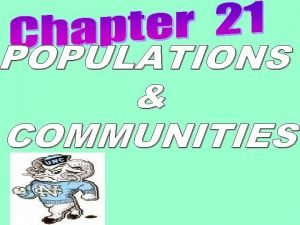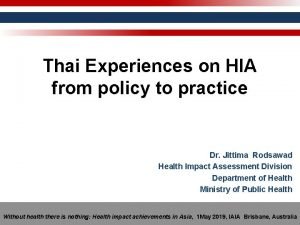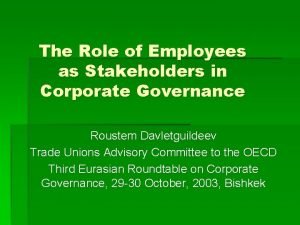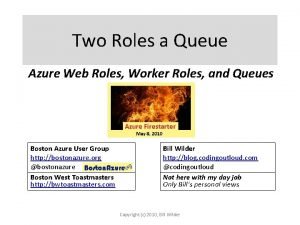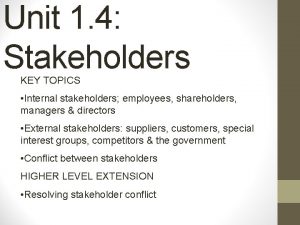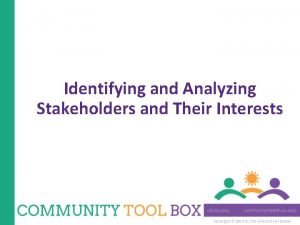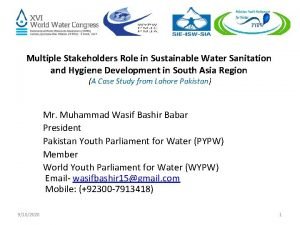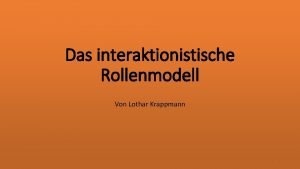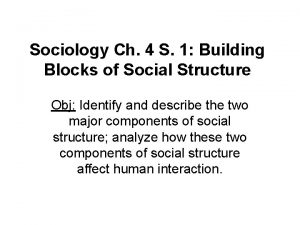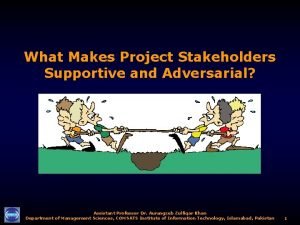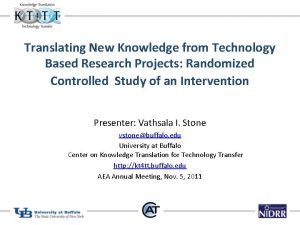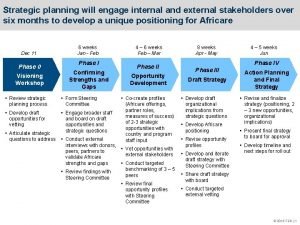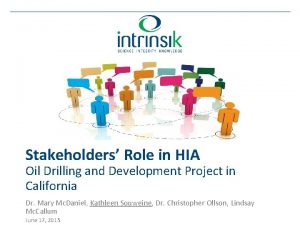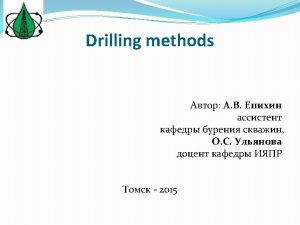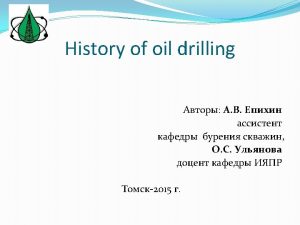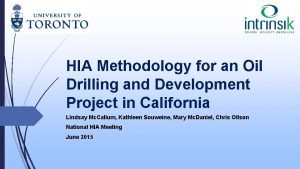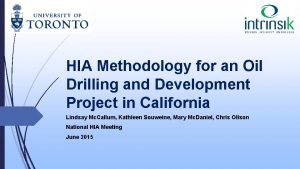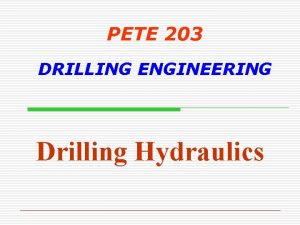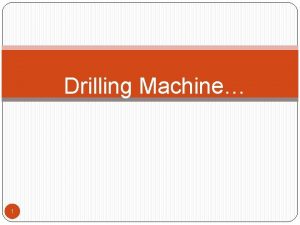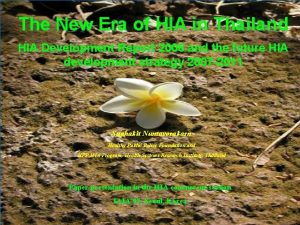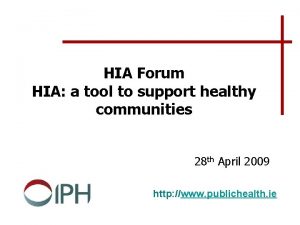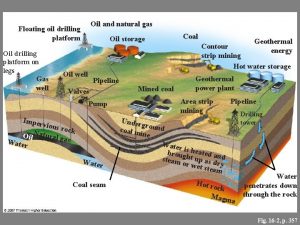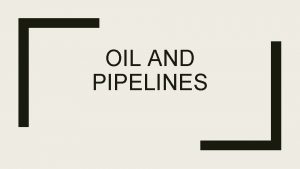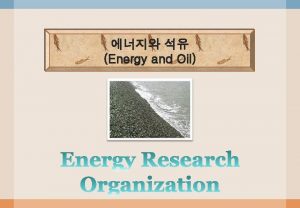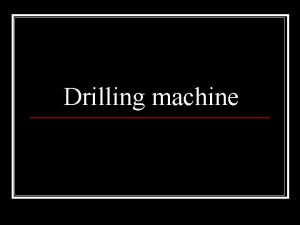Stakeholders Role in HIA Oil Drilling and Development























- Slides: 23

Stakeholders’ Role in HIA Oil Drilling and Development Project in California Dr. Mary Mc. Daniel, Kathleen Souweine, Dr. Christopher Ollson, Lindsay Mc. Callum June 17, 2015

Learning Objectives • Practical tools for stakeholder engagement in a community-level HIA • Benefits of stakeholder engagement in real practice • See how basic strategies of communication apply well to HIA

Stakeholder Engagement • Meaningful and inclusive participation of diverse stakeholders is an important component of HIA • Level and quality of stakeholder engagement varies widely (USEPA 2013)

Oil Drilling Project in Hermosa Beach, CA • Proposed project for 30 wells drilled on a 1. 3 acre site, completed in 4 phases over 30 -35 years • Project site in densely populated town close to residences and the beach

“The Best Little Beach City” • Small city in LA County 20, 000 people • 1. 43 square miles • • Highly educated • Affluent • Active residents • Relatively young demographic

People To Decide • Hermosa beach residents to decide whether to repeal the existing ban on oil drilling Repealing the ban would allow the project to move forward • Or with the ban the City owes the oil company $17. 5 million • • City initiated public decision-making process with three impact assessments: HIA EIR CBA

Stakeholders • Residents (population = 20, 000) • Community-based organizations • Oil company • Elected officials (City Council) • Small businesses • Public agencies (schools, police department, fire department)

Engaging Stakeholders During all Stages 1. Screening Decide if a HIA is feasible, timely and adds value to the decision-making process 2. Scoping Create a plan that defines priority issues, research questions and methods, and participant roles 3. Assessment Provide profile of existing conditions, evaluation of potential health impacts, and evidence-based recommendations 4. Reporting Develop HIA report and communicate findings and recommendations 5. Evaluation/ Monitoring Track the impact of HIA on decision, decisionmaking process, and health determinants

1. Screening Decide if a HIA is feasible, timely and adds value to the decision-making process • City and citizen concern that the legally-required EIR would not adequately address potential health issues • Oil company questioned what HIA, an “undefined document” could add that EIR would not address

2. Scoping Create a plan that defines priority issues, research questions and methods, and participant roles Open house kick-off event at the Community Center with a “passport” sticker book (HIA, EIR, CBA) • Scoping meeting • Online survey to solicit input •

Online Survey • 292 Responses number of people who responded "very concerned" 0 Potential impacts to the ocean or beach Explosions/Spills/Accidents Soil contamination Odor Air quality issues (e. g. particulate emissions) Surface water/runoff contamination Drinking water contamination Truck traffic Property values Noise Land subsidence (sinking) Less access to community spaces (e. g. , the greenbelt and parks) Image of the City Earthquakes Vibration Parking problems Lights 50 100 150 200 250 300

Health Determinants 1. Particulate matter (PM) 3. Nitrogen dioxide (NO 2) 2. Toxic Air Contaminants (TAC) 4. Odor Air Quality 5. Surface water 6. Soil particulates Water and Soil 7. Oil spill 8. Well blowout Upset Scenario 9. Noise emissions 10. Light emissions Noise and Lighting 11. Traffic safety 12. Perceived traffic hazards Traffic 13. Property Values 15. Access to recreation/ green space 17. Aesthetics 14. Education funding 16. Social cohesion 18. Political Involvement Community Livability

3. • Assessment Provide profile of existing conditions, evaluation of potential health impacts, and evidence-based recommendations Used local data sources as part of the evidence base Quality of life committee provided baseline information about community livability • Health District Reports • Local University provided the baseline cancer assessment • • One-on-one interviews

4. Reporting Develop HIA report and communicate findings and recommendations Presentations of draft findings with Q&A sessions • Public comment period on draft report • Other meetings with activist groups, City Council, and oil company • Two final open houses on final HIA prior to vote •

Basic strategies of communication are essential for HIA engagement COMMUNICATING WITH STAKEHOLDERS 101

HOW TO ENGAGE STAKEHOLDERS have to trust you. 1 They People decide within 30 seconds whether they trust you! need to like you. 2 They People like people who appear to like them

WHAT ARE YOUR STAKEHOLDERS LIKE? Active Public Attentive Public Seeking to affect Relatively aware decisions and make its views known Passive Public Largely unaware

MOST COMMUNICATION IS UNSPOKEN Think about how you deliver your statements, not just the words you use.

HOW CAN YOU BETTER COMMUNICATE? ü Identify and understand stakeholder values, perceptions and concerns ü Understand the importance of trust and credibility ü Select channels that target your audience ü Ensure that expectations of stakeholders as a result of their participation are accurate ÜEVALUATE YOUR EFFORTS!

Conclusions • A diversity of stakeholder involvement is important at every HIA stage • Stakeholder engagement resulted in addressing health concerns important to the public • Integration with EIR process allowed for sharing engagement opportunities • Open dialogue and communication with community improved the results of this HIA


Thank You! Kathleen Souweine, MPH ksouweine@intrinsik. com

Discussion Questions • Can anyone provide examples of effective engagement methods in your experience conducting HIAs? • Should community members ever be compensated for time spent participating on HIAs? • Stakeholder engagement takes significant time and resources, is stakeholder engagement possible for rapid HIAs?
 Drilling for oil and gas can interrupt migration in
Drilling for oil and gas can interrupt migration in Anwr drilling pros and cons
Anwr drilling pros and cons Poslopja na kmetiji
Poslopja na kmetiji Role of employees as stakeholders
Role of employees as stakeholders Primary emulsion example
Primary emulsion example Azure worker role
Azure worker role Secondary stakeholders
Secondary stakeholders Key internal and external stakeholders
Key internal and external stakeholders Software
Software Stakeholders and their interests
Stakeholders and their interests The corporation and its stakeholders
The corporation and its stakeholders Specific and pervasive boundaries for behavior
Specific and pervasive boundaries for behavior Stakeholder internal and external
Stakeholder internal and external Stakeholders in water and sanitation
Stakeholders in water and sanitation Krappmann modell
Krappmann modell Role conflict occurs when fulfilling the role expectations
Role conflict occurs when fulfilling the role expectations Adversarial stakeholders
Adversarial stakeholders Understanding your stakeholders
Understanding your stakeholders C level stakeholders
C level stakeholders Real estate stakeholders
Real estate stakeholders Power and influence matrix
Power and influence matrix Internal vs external stakeholders
Internal vs external stakeholders Stakeholders higher business
Stakeholders higher business Who are stakeholders of a company
Who are stakeholders of a company
